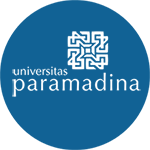INOVASI PRODUK HALAL BERBASIS TEKNOLOGI SEBAGAI STRATEGI KEUNGGULAN KOMPETITIF UMKM HALAL : KAJIAN LITERATUR
Abstract
Halal MSMEs play a strategic role in the development of the national economy, especially in meeting the needs of the growing halal product market. This study aims to examine how technology-based product innovation can be a primary strategy in increasing the competitive advantage of halal MSMEs. Through a qualitative approach with a literature review, it was found that the use of technologies such as blockchain, digitalization of halal certification, digital marketing, and the use of IoT can improve operational efficiency, supply chain transparency, and expand market reach. However, challenges such as low digital literacy, high technology implementation costs, and infrastructure limitations are still significant obstacles. Great opportunities are open thanks to the growth of the global halal market, government policy support, and the digitalization trend among Muslim consumers. This study emphasizes the importance of strengthening human resource capacity, cross-sector collaboration, and the implementation of adaptive technology-based strategies to strengthen the competitiveness of halal MSMEs in a sustainable manner.
Keywords: Halal innovation, MSMEs, digital technology, competitive advantage, digitalizationFull Text:
PDFReferences
Ali, M. H., & Al-Quradaghi, B. (2021). Blockchain technology in halal supply chain management: A literature review. Journal of Islamic Marketing, 12(7), 1365-1383.
Amalia, R., & Witiastuti, R. S. (2022). Tantangan UMKM Halal Indonesia dalam Menghadapi Persaingan Global. Jurnal Ekonomi Syariah Teori dan Terapan, 9(3), 345-358.
Apriyanti, H. W. (2020). The Role of MSMEs in Indonesia's Halal Industry Development. Journal of Halal Product and Research, 3(2), 67-78.
Arsiwi, P., & Adi, P. W. (2020). Strategi Peningkatan Keunggulan Kompetitif UKM Mina Indo Sejahtera Dengan Metode Interpretive Structural Modelling dan Analytic Network Process. 10(3), 218–226.
Bangkalan, K. (2022). Jurnal maneksi vol 11, no. 2, desember 2022. 11(2), 427–439.
Badan Pusat Statistik (BPS). (2023). Statistik UMKM Indonesia 2023. Jakarta: BPS.
Covid-, S. P., Nugroho, A. P., & Rahman, A. (2022). Digitalisasi dan Keberlangsungan UMKM Kuliner Halal. 8(02), 1654–1660.
DinarStandard. (2023). State of the Global Islamic Economy Report 2023/2024. Dubai: DinarStandard.
Effendy, A. A., & Sunarsi, D. (2020). Persepsi Mahasiswa Terhadap Kemampuan Dalam Mendirikan UMKM Dan Efektivitas Promosi Melalui Online Di Kota Tangerang Selatan. 4(3), 702–714.
El, F., Azra, A., & Farihah, I. (2024). Pembentukan Kapabilitas Digital Pada Transformasi Digital UMKM : Pendekatan Integratif Review. 4, 12016–12026.
Godwin, G., Raihana, S., Junaedi, P., & Hardini, M. (2024). Inovasi Bisnis Digital untuk Mendorong Pertumbuhan UMKM melalui Teknologi dan Adaptasi Digital. 5(2), 41–47.
Hakim, L., & Suryanto, T. (2021). Indonesia as a Global Halal Hub: Opportunities and Strategic Policies. Economica: Jurnal Ekonomi Islam, 12(1), 1-20.
Hidayat, W., & Kholik, N. (2024). Implikasi Hukum atas Perubahan Bisnis UMKM : Strategi Adaptasi Era Digital dan E-commerce di Indonesia. 1(1), 70–84. https://doi.org/10.38043/jah.v7i1.5052
Islam, J. E., & Sintesis, S. M. (2024). Al-Sharf Al-Sharf Jurnal Ekonomi Islam. 5(1), 19–33.
Journal of Islamic Economics, Finance, and Banking. (2020). 2(2), 105–130.
Keislaman, F., & Madura, U. T. (2021). MINUMAN UMKM DI KABUPATEN SAMPANG. 2(2), 118–129.
Kementerian Perindustrian RI. (2021). Peta Jalan Pengembangan Industri Halal Indonesia 2021-2024. Jakarta: Kemenperin
Khan, S. (2020). Leveraging Industry 4.0 for the Halal Industry: Prospects and Challenges. Journal of Islamic Marketing, 11(6), 1599-1616.
Pengaruh, A., & Peningkatan, E. T. (2020). Analisis pengaruh e-commerce terhadap peningkatan kinerja umkm (studi kasus pada umkm di kabupaten sumbawa). 04(01), 6–10.
Porter, M. E., & Heppelmann, J. E. (2014). How Smart, Connected Products Are Transforming Competition. Harvard Business Review, 92(11), 64-88.
Purnomo, A. (2024). Pengembangan inovasi kemasan untuk meningkatkan merek dan keunggulan kompetitif bagi umkm klanting sumber rezeki teluk pandan kabupaten pesawaran. 3, 72–76.
Prasetio, E. A., Sapiie, L., & Tjakraatmadja, J. H. (2020). Technology-Based Innovation Strategy for Halal SMEs in Indonesia. Proceedings of the International Conference on Industrial Engineering and Operations Management, Dubai, UAE.
Sari, M. (2023). Potensi Pasar UMKM Halal Dalam Perekonomian Indonesia. 04(1).
Savitri, N. A., & Putra, R. R. (2022). Sosialisasi Sistem Jaminan Halal Bagi Pelaku Usaha Mikro , Kecil dan Menengah ( UMKM ). 6(2). https://doi.org/10.12962/j26139960.v6is2.217
Sunu, J., & Tyoso, P. (2020). Perlukah Mempertahankan Keunggulan Kompetitif oleh UMKM ? ( Studi Kasus UMKM Semarang ). 9(2), 123–136.
Susanto, H., & Hidayat, N. (2021). Digital Transformation Barriers in Indonesian SMEs: A Qualitative Study. Jurnal Manajemen dan Kewirausahaan, 23(1), 10-18.
Yasin, R. M., Fahira, K. T., & Alpandari, H. (2024). Sertifikasi halal sebagai nilai tambah inovasi produk UMKM unggulan. 4(225), 519–527. https://doi.org/10.33474/jp2m.v4i2.20682
DOI: https://doi.org/10.71312/mrbest.v3i2.288
Media Riset Bisnis Ekonomi Sains dan Terapan (MRBEST) Indexed by:
Lembaga Penerbit: Taksasila Edukasi Insani
Kontak: Tri Ananto
Alamat Resmi Penerbit: Jl. Cireundeu Raya No.1A, RT.002/ RW.06, Kelurahan Cireundeu, Kecamatan Ciputat Timur, Kota Tangerang Selatan, Banten 15419.
Copyright of Media Riset Bisnis Ekonomi Sains dan Terapan (e-ISSN: 2987-1875 )
Media Riset Bisnis Ekonomi Sains dan Terapan © 2023 by Taksasila Edukasi Insani is licensed under Creative Commons Attribution-ShareAlike 4.0 International












